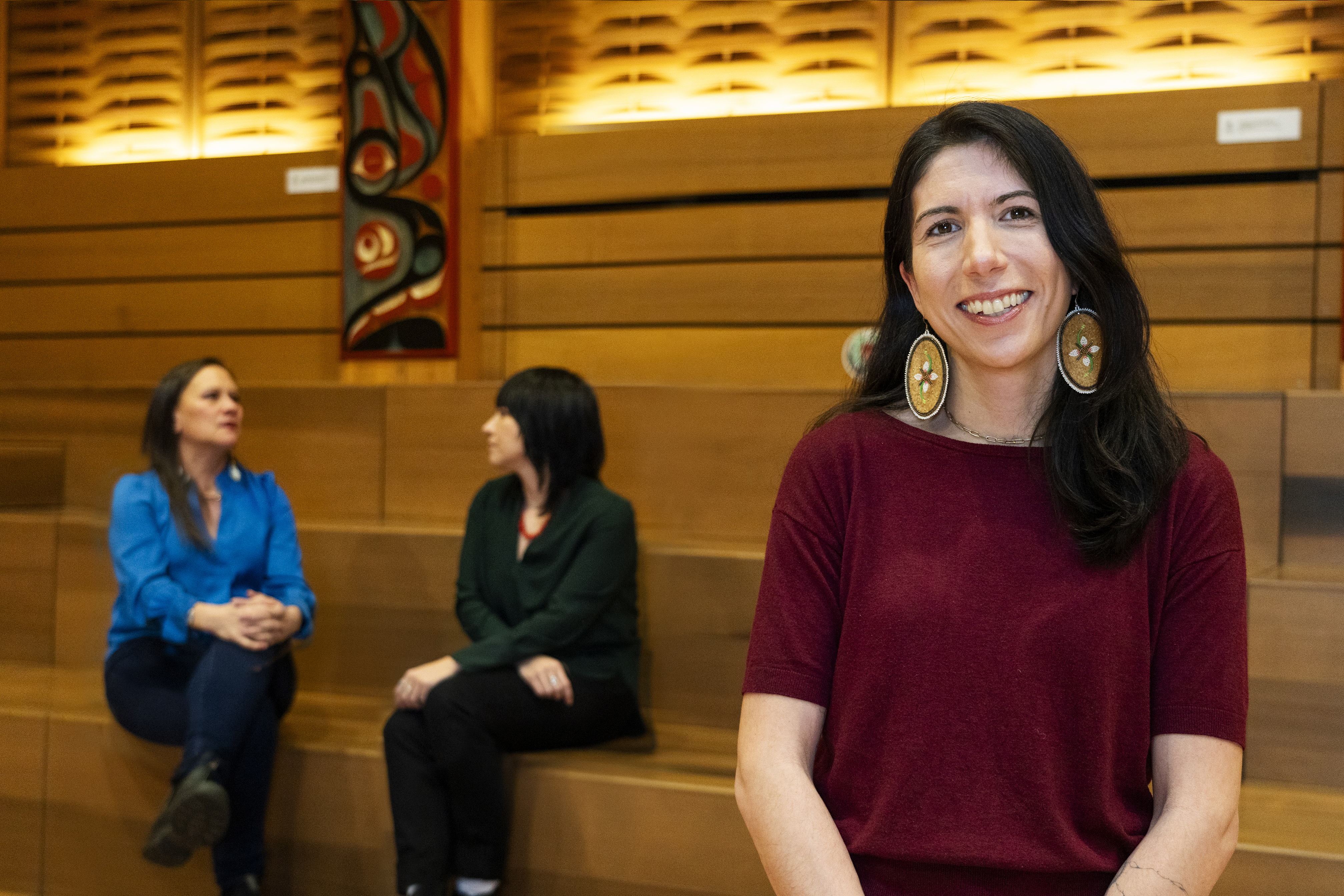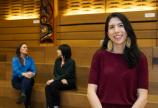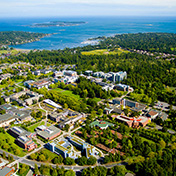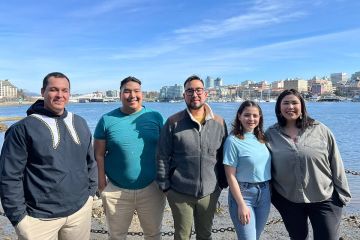Making space for Indigenous feminism
- Stephanie Harrington

What does it mean to make space for Indigenous feminism? School of Indigenous Governance Associate Professor Gina Starblanket explores this question as editor of the third edition of the seminal series Making Space for Indigenous Feminism. The book, which will be released in May by Fernwood Publishing, covers some of the most important issues facing Indigenous Peoples today, including violence against women, Indigenous resurgence and self-determination, racism, misogyny and decolonization. UVic features prominently, with essays from UVic School of Governance Director Hokulani K. Aikau and Political Science Assistant Professor Kelly Aguirre.
Here, Starblanket talks about Indigenous feminism and why this book matters.
What does it mean to “make space” for Indigenous feminism and why does that idea continue to be a necessity in the context of International Women’s Day?
Despite many advances in the Indigenous feminist movement, and feminist movements broadly speaking, there remains hostilities towards feminism in many academic, community, public and political spaces. Direct and structural colonialism, racism and heteropatriarchy continue to configure our social and political worlds, so the work of Indigenous feminists continues as we must still convey, theorize and validate our experiences and analyses in many non-Indigenous and Indigenous contexts.
Making space, then, means continuing to develop the theoretical and analytical foundations of Indigenous feminism, while also recognizing that the political terrain is changing. This means that we must also engage in a continuous practice of critical conversation with one another about the movement’s premises, central concepts, directions and applications to ensure its relevance and significance into the future.
How has Indigenous feminism shaped your work as a scholar and identity as a Cree and Saulteaux person?
Personally and politically, Indigenous feminism has provided me with the critical analytical tools to name and confront complex power dynamics across realms of life. These include racism and white supremacy; misogyny and heteropatriarchy; and dispossession and impoverishment. In academia, I have at times struggled with the limitations or narrow scope of some disciplinary and theoretical frames which claim to be liberatory but upon closer inspection, aren’t actually all that transformative. I’ve also struggled with modes of intellectual engagement that aren’t mirrored in practice, in the words and actions of those who think and write about these matters.
Feminism is critical praxis—you walk the talk or you go home. In academia, where we are all taught to perform intellectual exercises of one kind or another, and where there remains a deeply sedimented culture of silence and silencing around gendered and racialized violence, I’ve often found the greatest levels of solace, support and community from my anti-racist and Indigenous feminist colleagues. For me, the work would be impossible if not for these networks and relations.
What are you most excited about sharing with readers in the third edition of this book?
I’m excited to share a bit of the work that my Indigenous feminist colleagues and I have been doing with the world, and to illustrate new theorizations and applications of Indigenous feminism by a diversity of folks. In many ways, we’re moving beyond the question of whether or not to identify as a feminist, towards questions of what Indigenous feminisms are, what they enable as analytics and practices and what we want them to be. This allows scholars to begin from a different starting point and as a result, the discourse on Indigenous feminism is changing. The movement is becoming more attentive to critical philosophical matters — contemplating questions of transformation, freedom and autonomy. It’s also being more attentive to the body, to the social world of legal and political questions, to the limitations of our own vocabularies and concepts, and to the pitfalls of identity politics.
What impact do you hope Making Space makes in terms of the issues its writers raise?
I hope that it equips readers with the tools to identify, trace and problematize power relations that they face in their own everyday lives, that they gain an understanding of Indigenous feminisms as processes of critical engagement and action that can take a multiplicity of forms, rather than a hegemonic label or stance.Photos
In this story
Keywords: administrative, faculty, staff, student life, community, international women's day, women, Indigenous, feminism, colonialism, community, gender, human rights, Indigenous, governance, Indigenous governance
People: Gina Starblanket





